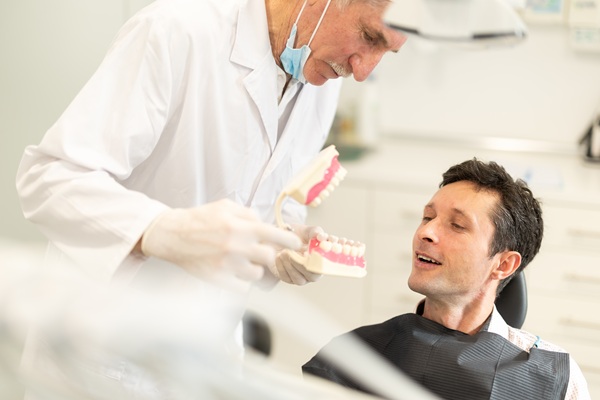What To Expect During and After Botox and Juvederm Dental Office Treatment

Botox® and Juvederm® are both designed to significantly reduce or temporarily eliminate wrinkles in certain areas of the face, but they go about the process in different ways. With regular treatments from a dental office, many patients enjoy smoother skin, firmer facial contours and the radiant appearance desired.
What to expect during a Botox® or Juvederm® treatment
Both Botox® and Juvederm® are injected into facial muscles using fine needles. This reduces patient discomfort and usually provides treatments that are pain free. In addition, many cosmetic dentists apply a topical anesthetic or ice pack to the target area to help patients feel even more comfortable. A number of Juvederm® products contain an anesthetic agent called lidocaine, which helps put the surrounding muscles to sleep during treatment.
A single Botox® treatment takes approximately 15 minutes to complete while patients recline comfortably in the dental chair. Juvederm® applications take anywhere from 30 to 60 minutes, depending on the size of the area treated.
What to expect following treatment
While cosmetic dental products provide excellent results for many people, certain types of wrinkles may not respond well to all treatments, such as gravity-related drooping. By speaking clearly with cosmetic dentists about the goal, it is easier to find the right solution.
Appearance
It takes between 5 and 10 days for patients to notice the complete effects of Botox® on facial muscles. Significant changes in wrinkles, radiant skin and a smooth appearance are typical benefits.
Juvederm® provides almost instantaneous results. Patients should generally see a number of effects:
- Fuller lips
- Smoother transition areas between the nose and mouth
- Reduced wrinkles
- Increased volume in cheeks
- Lifted cheek contours
The specific results after treatment depend on the type of product chosen and the goals discussed with the cosmetic dentist. Dental offices specializing in cosmetic enhancement are helpful for evaluating the costs and benefits of each procedure.
Side effects
The most common side effect of treatment is temporary bruising, redness or tenderness in the affected area. In the case of Botox®, it can take time for some patients to adjust to the feeling of “numbness” in facial muscles relaxed by the treatments. Juvederm® may cause inflammation or discoloration in rare cases, but these symptoms usually disappear within seven days.
Many of these problems are minimized when working with an experienced practitioner since dentists know the correct areas for injection and the precise dosage required. It is also essential to follow the instructions given by the dentist carefully. If you suspect any kind of allergic reaction, such as a rash, infection, itching or dizziness, it is important to call the dentist’s office right away for follow-up assistance.
Time between treatments
Botox® treatments remain effective for approximately three to six months. Follow-up visits are required after that for optimal results. Initial Juvederm® treatments last from nine months to one year. When applying hyaluronic filler on subsequent visits, dentists can use a smaller amount of gel.
Conclusion
Botox® and Juvederm® can be very effective for removing wrinkles around the eyes, mouth and lips. For excellent results, it is important to work with an experienced cosmetic dentist and speak openly about the desired goal. The effects may not be permanent, but they are noticeable and deliver happy smiles to many patients.
Are you considering Juvederm® in the Huntsville area? Get more information at https://www.yourhuntsvilledentist.com.
Check out what others are saying about our services on Yelp: Read our Yelp reviews.
Recent Posts
Choosing the best dentist is essential for maintaining your oral health. However, finding the right dentist for you can feel overwhelming with so many options available. Fortunately, by considering a few key factors and gathering some key information, you can identify a trustworthy dental professional who meets your needs.Convenience plays a significant role in choosing…
Endodontics treatment, which is the treatment of the tooth's inner pulp and structures, is one of the most efficient ways to save decaying or damaged teeth. Many individuals, however, get anxious when they learn they need it. This is mostly due to the widespread misconception that undergoing endodontic treatment is unpleasant. It is incorrect —…
Patients often search for root canal treatment when a tooth aches from deep decay, a crack, or inflamed pulp tissue. This therapy removes irritated nerve tissue, disinfects the canal space, and seals the tooth to prevent reinfection. By preserving the natural root, the procedure maintains bite balance and chewing strength. With careful planning, a restored…
Looking for information on periodontic care? Continue reading to learn about situations when a dentist might recommend periodontics. Periodontal disease, commonly known as gum disease, is a serious oral health issue that can result in severe oral infections and tooth loss. Periodontal disease may be contained and handled with the appropriate professional treatment.Gum disease can…


